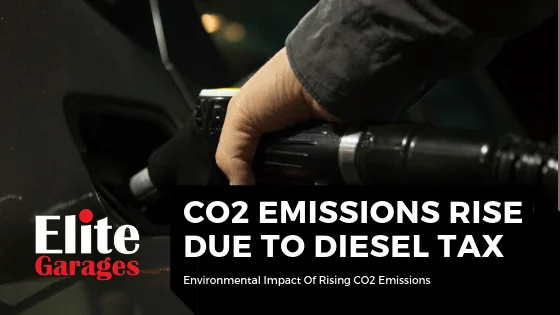
Brexit uncertainty along with failing consumer confidence in diesel cars is having a negative impact on the entire industry. In fact, UK car sales declined by nearly 7% in 2018. Vehicles sold in the UK totalled 2.37 million which is the lowest number for five years. It’s also less than the annual total for 2007 before the financial crisis struck. Only 750,000 new diesel cars were registered compared to 1.06 million in 2017. At the same time, the petrol car registrations increased by 100,000 units and now enjoy a 62.3% market share.
Not too long ago, many preferred diesel cars because of the lower CO2 emissions and higher mileage. But following the VW Dieselgate scandal in 2015, diesel has become a swear word in the car industry. We should really take a step back and look at all the numbers before making a judgement. In many circles, numbers and stats still mean something. It’s not only about petrol or diesel for personal or financial reasons, but the impact on our environment provides sufficient proof.
Diesel Cars And CO2 Emissions
Although new emission tests have indicated that diesel cars are more effective, many still prefer petrol for some reason. According to the Society of Motor Manufacturers and Traders (SMMT), diesel cars are on average 15-20% more efficient producing significantly less nitrogen oxide (NOx) and particulate emissions.
Despite the positive results, diesel car sales have dropped and now, the average CO2 emissions have subsequently increased by almost 3% to 124.5g/km. This increase is due to a combination of revised test results, fewer diesel sales and people purchasing bigger SUVs instead of smaller family cars.
After almost two years of decline, car manufacturers are selling 38% fewer diesel cars compared to the peak. They now make up less than 32% of the market while sales of petrol vehicles have increased by 8%. The SMMT predict a further drop in sales this year even without a hard Brexit. They warn that it would be catastrophic for the industry if the UK leave the EU without a deal.
According to Mike Hawes, SMMT chief executive, “Although some of the change in the car market could be cyclical, there was no doubt that business confidence had been shaken and that Brexit played a part. The propensity for a big-ticket purchase is down – and the second-biggest ticket purchase is a new car.”
Hawes added, “A second year of substantial decline is a major concern, as falling consumer confidence, confusing fiscal and policy messages and shortages due to regulatory changes have combined to create a highly turbulent market. The industry is facing ever-tougher environmental targets against a backdrop of political and economic uncertainty that is weakening demand so these figures should act as a wake-up call for policymakers.”
Meeting CO2 Emission Targets
Judging from the latest numbers, the car industry must make a serious effort to meet EU emission targets. Britain has pledged that after Brexit, manufacturers have to decrease CO2 output in their cars to an average of 95gm/km by 2021 or face the consequences.
While there are encouraging signs of alternatively fuelled vehicles, pure electric cars only make up 0.7% of the overall market. Mike Hawes believes that it just shows the challenges the industry face if they plan to meet the government’s aspirations. If CO2 emissions continue to increase, not only could it have detrimental effects on the environment but countries will also miss their targets for reducing emissions.
The decline in sales is a wider problem than just any manufacturer’s self-interest. Selling new cars is not only good for the industry but also for the consumer, the environment and the government. Replacing old cars with new technologies could make all the difference but we need coherent policies to encourage that.
“Despite the overall decline in 2018, demand for new cars in the UK remains solid, with volumes on a par with the preceding 15-year average, and the market still the second biggest in the EU, behind Germany,” said Hawes.
For more interesting articles on everything motoring related, visit our new website and check out the News section. If you require an MOT, a service or safety checks among many others, call your local Elite branch. We service all major makes and models using only matching quality parts according to the vehicle manufacturers.
About Us
Opening Times
Saturday : 8:30–4:00
Sunday : closed
More Information
Contact UsCustomer Information Pack
Check MOT Due Date
Free MOT reminder
Careers


